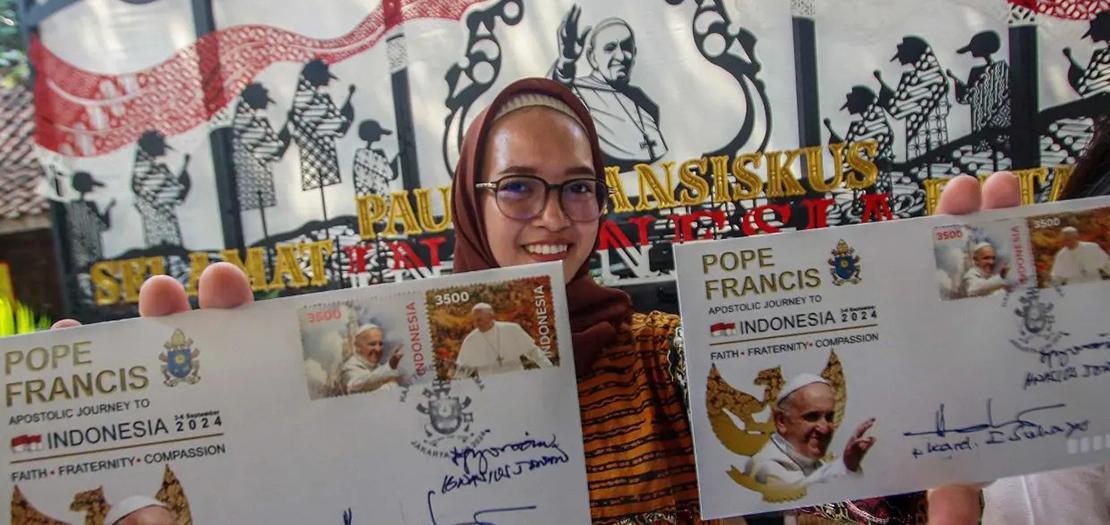Issued by the Catholic Center for Studies and Media - Jordan. Editor-in-chief Fr. Rif'at Bader - موقع أبونا abouna.org
From tunnels of war to the tunnel of fraternity
There are tunnels of war and terror, designed to hide soldiers, militants, and hostages. But there are also tunnels built to foster friendship among people of different faiths.
In Jakarta, the Istiqlal Mosque, the largest in Southeast Asia, stands across from the Catholic Cathedral of Our Lady of the Assumption, separated only by a three-lane highway.
Recently, an old underpass connecting these two places of worship was restored, adorned with artwork, and transformed into a "Tunnel of Fraternity" to unite the place for Muslim prayer with the one Christians use to celebrate the Eucharist.
In a world engulfed by conflicts, some widely covered by the media, others all but forgotten, where violence and hatred seem to prevail, we desperately need paths of friendship, opportunities for dialogue, and a commitment to peace because we are "Fratelli tutti" (“all brothers”).
This is the message that the Successor of Peter, a builder of bridges, brings to us.
On Monday, Pope Francis embarks on his longest Apostolic Journey yet, travelling to Asia and Oceania. His itinerary begins in Indonesia—the world's most populous Muslim country—and continues to Papua New Guinea, Timor-Leste, and finally Singapore.
His is a pilgrimage that aims to show closeness to Christians where they are only "small flocks," as in Indonesia, or where they make up almost the entire population, as in Timor-Leste.
The journey is also an opportunity to meet all people and reaffirm that we are not condemned to walls, barriers, hatred, and violence because men and women of different faiths, ethnicities, and cultures can coexist, respect one another, and collaborate.
Although this visit was planned four years ago and delayed due to the pandemic, today it takes on a prophetic significance. The Bishop of Rome, in the style of St. Francis of Assisi, whose name he bears, does not come to conquer or proselytise, but simply with a desire to witness the beauty of the Gospel.
His journey will take him as far as Vanimo, a small town of nine thousand souls on the shores of the Pacific Ocean. This same spirit motivated his predecessor, Pope St. Paul VI, who on November 29, 1970, flew to Apia in independent Samoa to celebrate Mass on a small, makeshift altar at Leulumoega for a few hundred islanders.
It is also what inspired John Paul II to visit this region of the world multiple times, leading him to say, in Singapore on November 20, 1986, regarding the "true essence" of Jesus' teachings: "Love responds generously to the needs of the poor, and it is marked by compassion for those in sorrow. Love is quick to offer hospitality and is persevering in times of trial. It is always ready to forgive, to hope and to return a blessing for a curse. 'Love does not come to an end.' (1 Cor 13:8). The commandment of love is the heart of the Gospel."


